In the vast landscape of transportation and logistics, the semi tractor trailer stands as a pivotal component ensuring the seamless movement of goods across the globe. At CarMax Vehicle, we specialize in the design and manufacturing of top-tier semi-trailers, catering to diverse industries and logistical needs. This article delves deep into the intricacies of what a semi tractor trailer is, its components, types, benefits, and the pivotal role it plays in modern logistics.
Table of Contents
- What is a Semi Tractor Trailer?
- Key Components of a Semi Tractor Trailer
- Types of Semi Tractor Trailers
- Advantages of Using Semi Tractor Trailers
- Choosing the Right Semi Tractor Trailer
- Maintenance and Safety of Semi Tractor Trailers
- CarMax Vehicle: Leading the Way
- Frequently Asked Questions
What is a Semi Tractor Trailer?
A semi tractor trailer, commonly referred to as a semi-truck, tractor-trailer, or 18-wheeler, is a combination of a tractor unit and one or more semi-trailers to carry freight. This configuration is highly efficient for transporting large volumes of goods over long distances. The tractor houses the engine and cab where the driver operates, while the trailer is the detachable unit that carries the cargo.
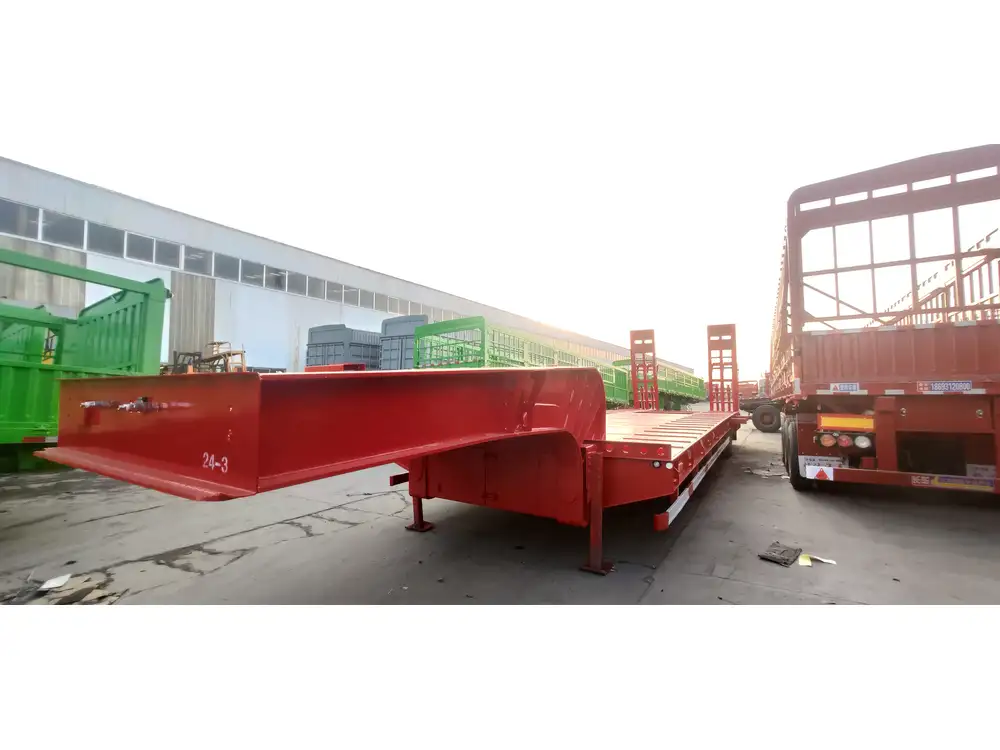
Visual Representation
| Component | Description |
|---|---|
| Tractor | The front part containing the engine, driver’s cabin, and controls. Equipped with wheels and a fifth wheel coupling for attaching the trailer. |
| Trailer | The cargo-carrying unit, which can vary in type depending on the goods being transported. It lacks a front axle and is connected to the tractor via the fifth wheel. |
Key Components of a Semi Tractor Trailer
Understanding the fundamental components of a semi tractor trailer is essential for appreciating its functionality and versatility.
1. Chassis
The chassis is the backbone of the trailer, providing structural support. It includes the frame, axles, and wheels, ensuring stability and durability during transit.
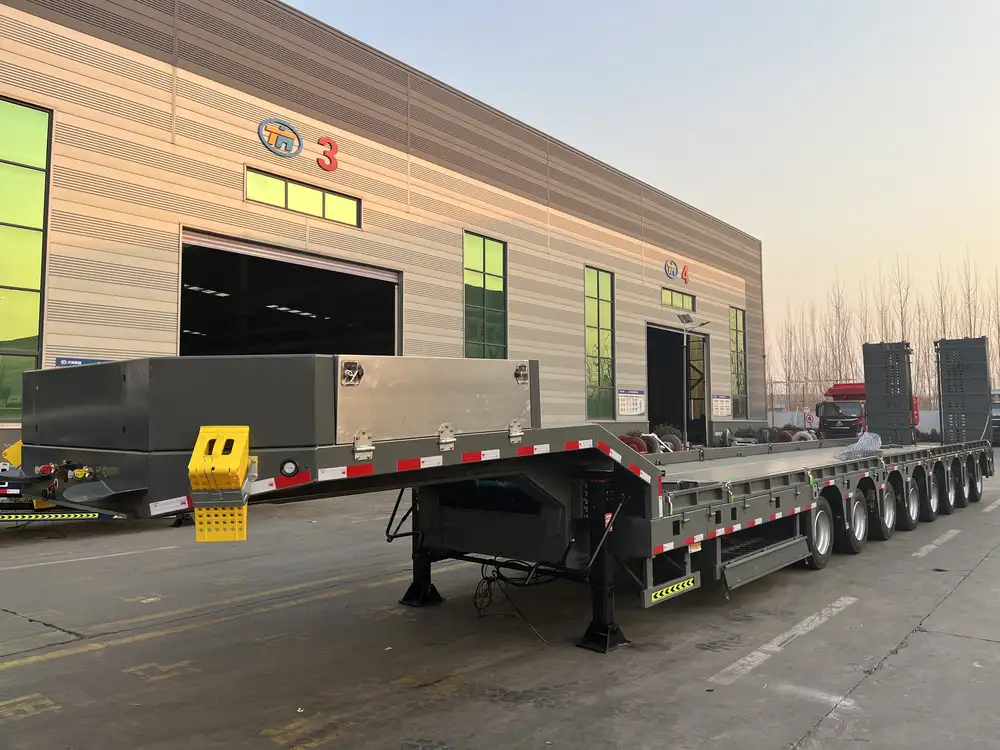
2. Axles and Suspension
Axles bear the weight of the trailer and its cargo. Suspension systems, comprising springs and shock absorbers, absorb road impacts, providing a smoother ride and protecting the cargo.
3. Braking System
A robust braking system is crucial for safety. Semi trucks typically employ air brakes, which use compressed air to activate the brake pads on each wheel.
4. Fifth Wheel
Located on the tractor, the fifth wheel is a circular coupling device that connects the tractor to the trailer, allowing for pivotal movement and articulation.
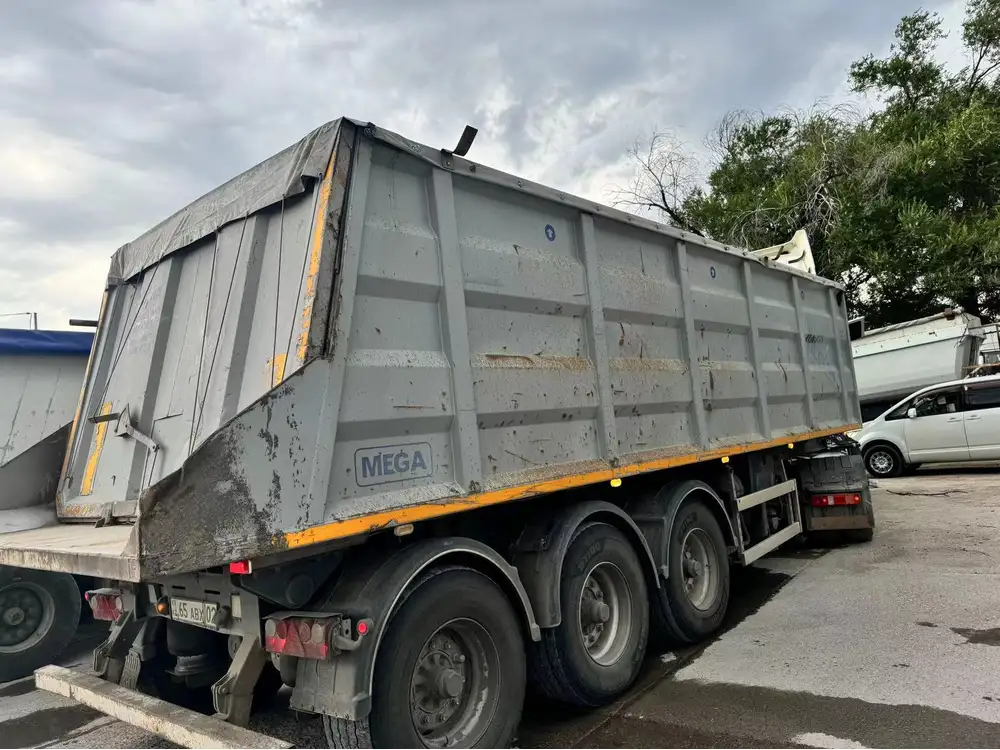
5. Lighting and Electrical Systems
Trailers are equipped with lighting for visibility and signaling. Electrical systems also power various trailer-mounted devices and monitoring equipment.
6. Cargo Handling Equipment
Depending on the trailer type, this may include tie-downs, straps, pallet racking, refrigeration units, or specialized fixtures for handling specific types of cargo.
Types of Semi Tractor Trailers
Semi tractor trailers come in various types, each tailored to specific transportation needs. Here’s an overview of the most common types:
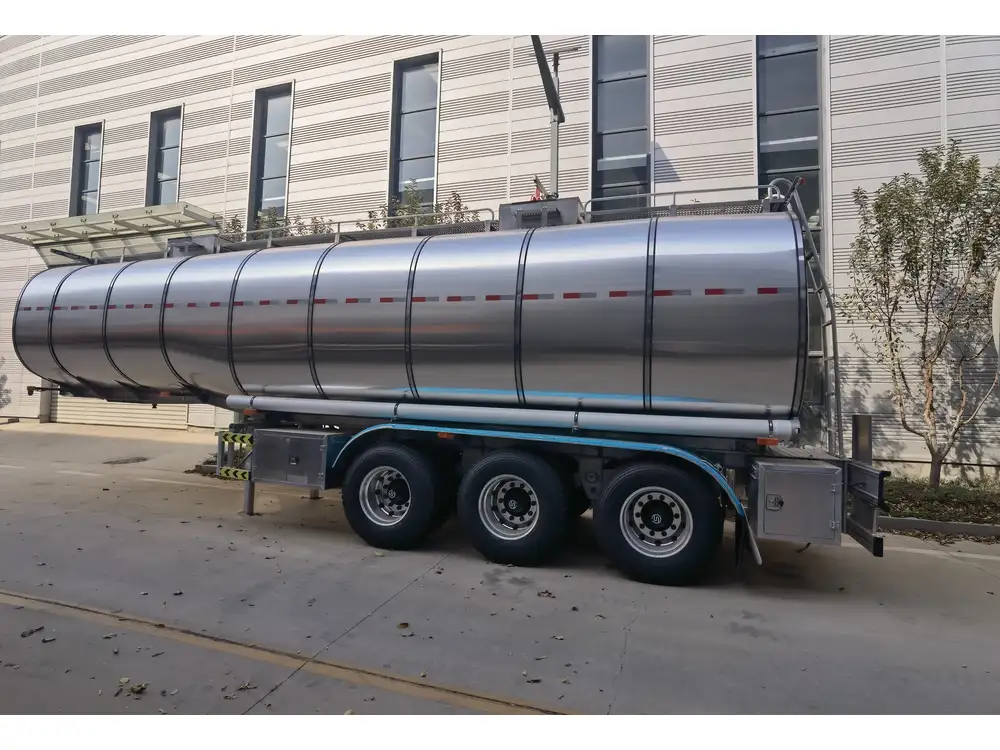
Flatbed Trailers
Flatbed trailers feature a flat, open deck without walls or a roof, making them ideal for transporting oversized or irregularly shaped cargo such as construction materials, machinery, and oversized equipment.
Advantages:
- Versatility in loading and unloading from any side.
- Suitable for a wide range of cargo types.
- Easier handling of oversized or heavy items.
Dry Van Trailers
Dry van trailers are enclosed trailers designed to protect cargo from weather and environmental factors. They are commonly used for transporting dry goods like electronics, clothing, and packaged foods.
Advantages:
- Enhanced security and protection.
- Suitable for a wide range of non-perishable goods.
- Controlled internal environment.
Refrigerated Trailers (Reefers)
Refrigerated trailers, or reefers, are equipped with cooling systems to transport perishable goods that require temperature control, such as fresh produce, dairy products, and pharmaceuticals.
Advantages:
- Maintains specific temperature ranges.
- Preserves the quality and integrity of perishable goods.
- Essential for industries requiring temperature-sensitive transportation.

Tanker Trailers
Tanker trailers are specialized for transporting liquids and gases, including fuel, chemicals, and milk. They are constructed with materials resistant to corrosion and leakage.
Advantages:
- Safe transportation of hazardous and non-hazardous liquids.
- Designed with safety features to prevent spills and leaks.
- Can handle a variety of liquid cargoes.
Lowboy Trailers
Lowboy trailers are designed with a lower deck height, allowing for the transportation of exceptionally tall or heavy equipment, such as construction machinery and large vehicles.
Advantages:
- Accommodates oversized and heavy loads.
- Enhanced stability due to lower center of gravity.
- Ideal for transporting construction and industrial equipment.
Advantages of Using Semi Tractor Trailers
Investing in semi tractor trailers offers numerous benefits, enhancing efficiency and reliability in logistics operations.

1. Efficiency in Transportation
Semi tractor trailers are engineered for long-haul transportation, enabling the movement of large volumes of goods in a single trip, thereby reducing transportation costs and improving supply chain efficiency.
2. Versatility
With a variety of trailer types available, semi tractor trailers can accommodate virtually any type of cargo, from perishable goods to heavy machinery, making them indispensable in numerous industries.
3. Durability and Reliability
Constructed with robust materials and advanced engineering, semi tractor trailers are built to withstand the rigors of long-distance travel, ensuring longevity and consistent performance.
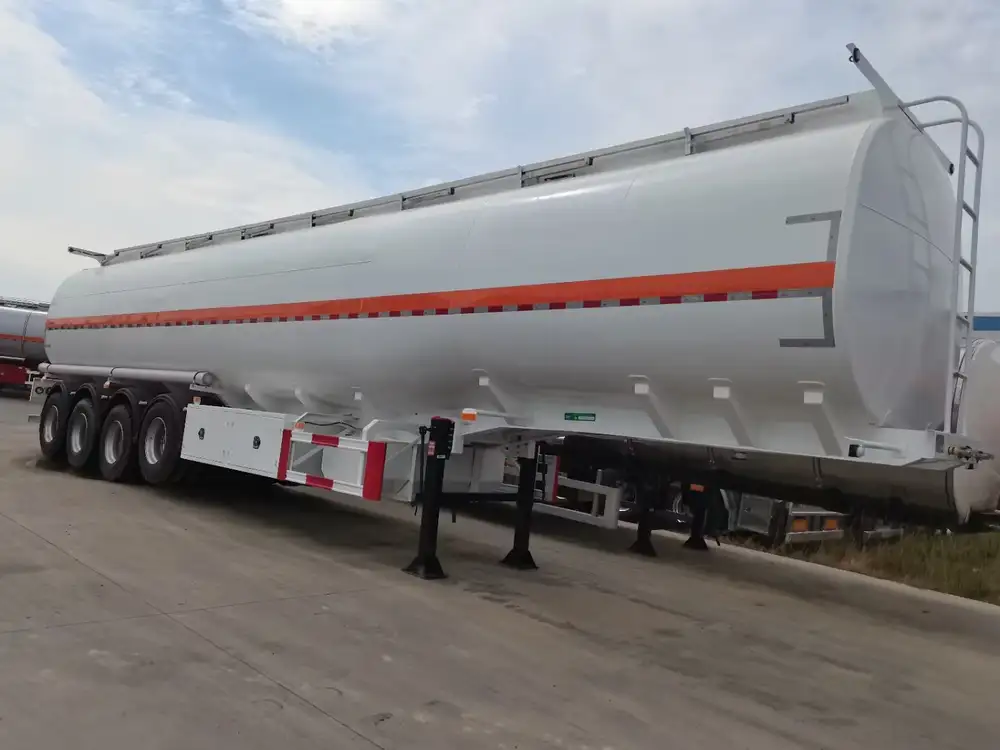
4. Flexibility in Routing
Semi tractor trailers can navigate a wide range of routes, from highways to rural roads, providing flexibility in delivery schedules and routes to meet various logistical demands.
5. Safety Features
Modern semi tractor trailers are equipped with advanced safety features such as anti-lock braking systems, stability control, and reflective markings, enhancing safety on the road for both the driver and cargo.
6. Customization Options
Manufacturers like CarMax Vehicle offer customizable solutions, allowing businesses to tailor trailers to their specific needs, including size, cargo handling equipment, and additional features.

Choosing the Right Semi Tractor Trailer
Selecting the appropriate semi tractor trailer is crucial for optimizing transportation operations. Consider the following factors when making your selection:
1. Type of Cargo
Identify the nature of the goods to be transported. Perishable items may require refrigerated trailers, while oversized equipment may necessitate flatbed or lowboy trailers.
2. Load Capacity
Assess the weight and volume of the cargo to ensure the trailer can handle the load without exceeding weight limits, ensuring compliance with transportation regulations.

3. Route Considerations
Consider the typical routes, including terrain and infrastructure, to determine if specialized trailers are needed for specific road conditions or urban environments.
4. Regulatory Compliance
Ensure the trailer meets all relevant safety and transportation regulations, including weight limits, emissions standards, and safety features mandated by authorities.
5. Budget Constraints
Evaluate the cost of the trailer, including initial investment and ongoing maintenance expenses, to find a solution that aligns with your budget without compromising on quality.
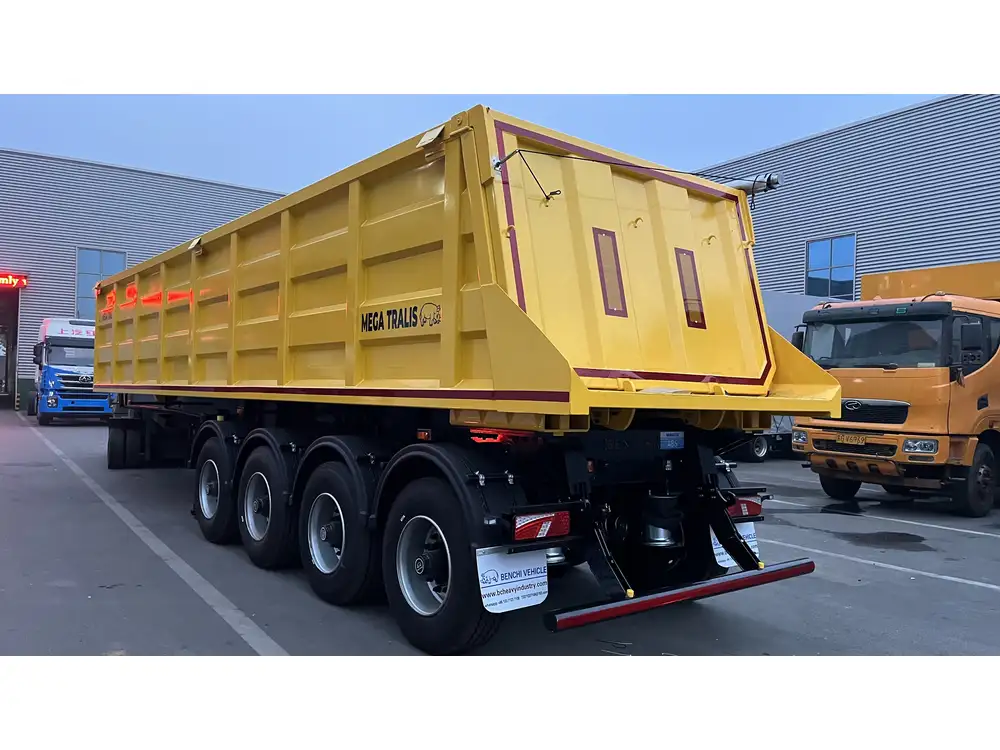
6. Manufacturer Reputation
Choose reputable manufacturers like CarMax Vehicle, known for producing durable, reliable, and high-performance semi tractor trailers tailored to diverse transportation needs.
Maintenance and Safety of Semi Tractor Trailers
Proper maintenance and adherence to safety protocols are essential for the longevity and safe operation of semi tractor trailers.
Maintenance Best Practices
- Regular Inspections: Conduct routine checks of critical components such as brakes, tires, lights, and suspension systems to identify and address issues promptly.
- Scheduled Servicing: Adhere to manufacturer-recommended maintenance schedules for servicing engines, hydraulic systems, and other mechanical parts.
- Cleanliness: Keep the trailer clean to prevent corrosion, reduce the risk of contamination (for refrigerated and tanker trailers), and maintain overall integrity.
- Proper Storage: Store trailers in covered or sheltered areas to protect them from harsh weather conditions that could lead to wear and tear.
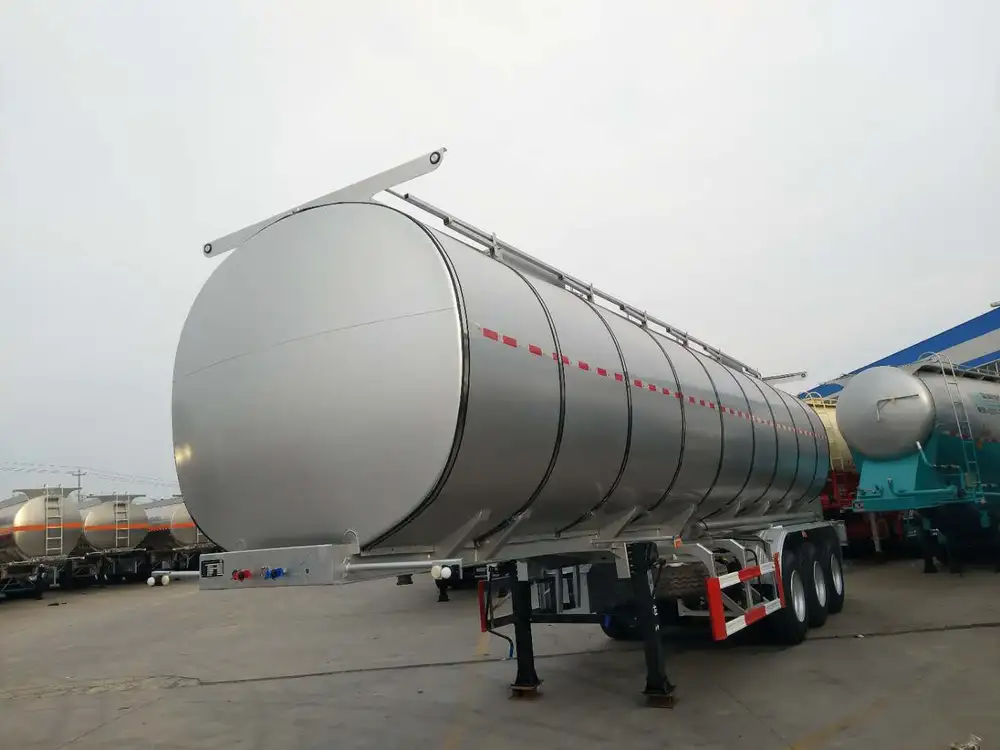
Safety Protocols
- Load Securement: Ensure all cargo is properly secured using appropriate tie-downs, straps, and restraints to prevent shifting during transit.
- Weight Compliance: Adhere to weight limits to avoid overloading, which can compromise vehicle handling and lead to regulatory violations.
- Driver Training: Provide comprehensive training for drivers on safe operating practices, cargo handling, and emergency procedures.
- Use of Safety Equipment: Equip trailers with necessary safety gear such as reflective markings, warning signs, and safety chains to enhance visibility and preparedness.
CarMax Vehicle: Leading the Way
CarMax Vehicle stands at the forefront of semi tractor trailer manufacturing, offering innovative solutions tailored to the evolving needs of the transportation and logistics sectors. Our commitment to excellence is reflected in our diverse range of trailers, each engineered with precision, durability, and efficiency in mind.
Why Choose CarMax Vehicle?
- Advanced Engineering: Utilizing the latest technological advancements to design trailers that meet the highest standards of performance and reliability.
- Customization: Offering bespoke trailer configurations to cater to specific client requirements, ensuring optimal functionality and efficiency.
- Quality Assurance: Implementing rigorous quality control measures throughout the manufacturing process to guarantee superior product quality.
- Sustainability: Embracing eco-friendly practices and materials to produce trailers that minimize environmental impact without compromising on performance.
- Customer Support: Providing exceptional after-sales support, maintenance services, and customer assistance to ensure seamless operations for our clients.
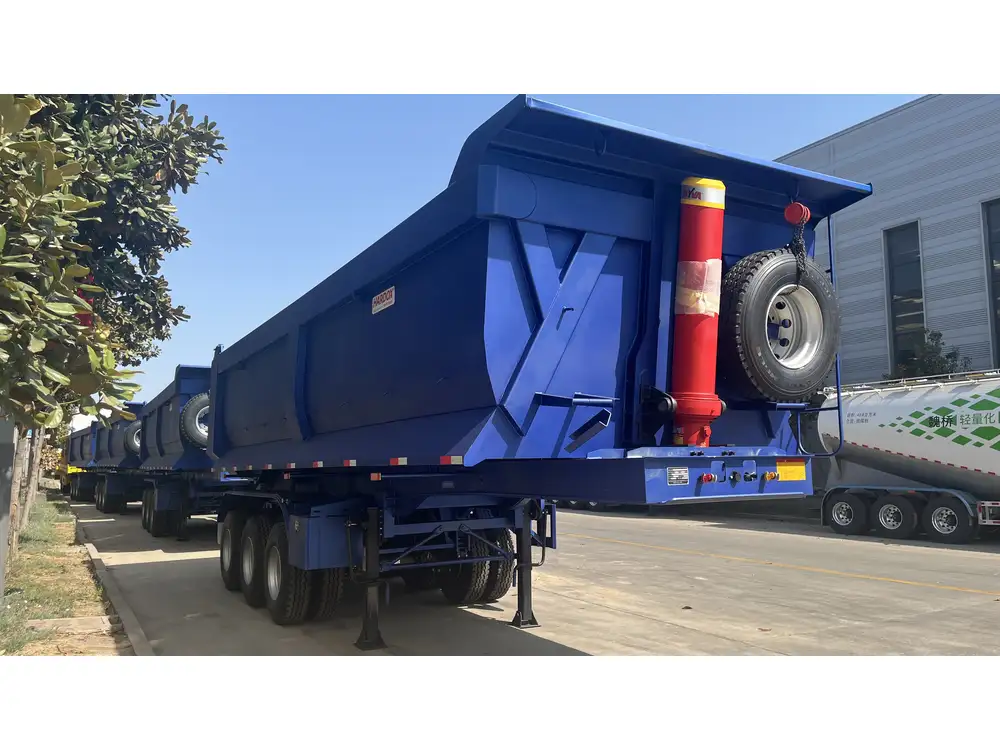
Our Product Line
| Trailer Type | Features | Ideal For |
|---|---|---|
| Flatbed | Adjustable ramps, heavy-duty frame, lightweight materials | Construction materials, oversized equipment |
| Dry Van | Insulated walls, secure locking systems, climate control options | Electronics, clothing, non-perishables |
| Reefer | Advanced refrigeration units, temperature monitoring, insulated panels | Perishable goods, pharmaceuticals |
| Tanker | Corrosion-resistant materials, secure fittings, safety valves | Liquids, gases, hazardous materials |
| Lowboy | Low deck height, high weight capacity, stabilizing jacks | Heavy machinery, industrial equipment |
Frequently Asked Questions
1. What differentiates a semi tractor trailer from other types of trucks?
A semi tractor trailer is a combination of a tractor unit and one or more detachable trailers, designed for hauling large volumes of goods over long distances. Unlike other trucks with fixed cargo areas, semi tractor trailers offer versatility through interchangeable trailers, catering to various cargo types and transportation needs.
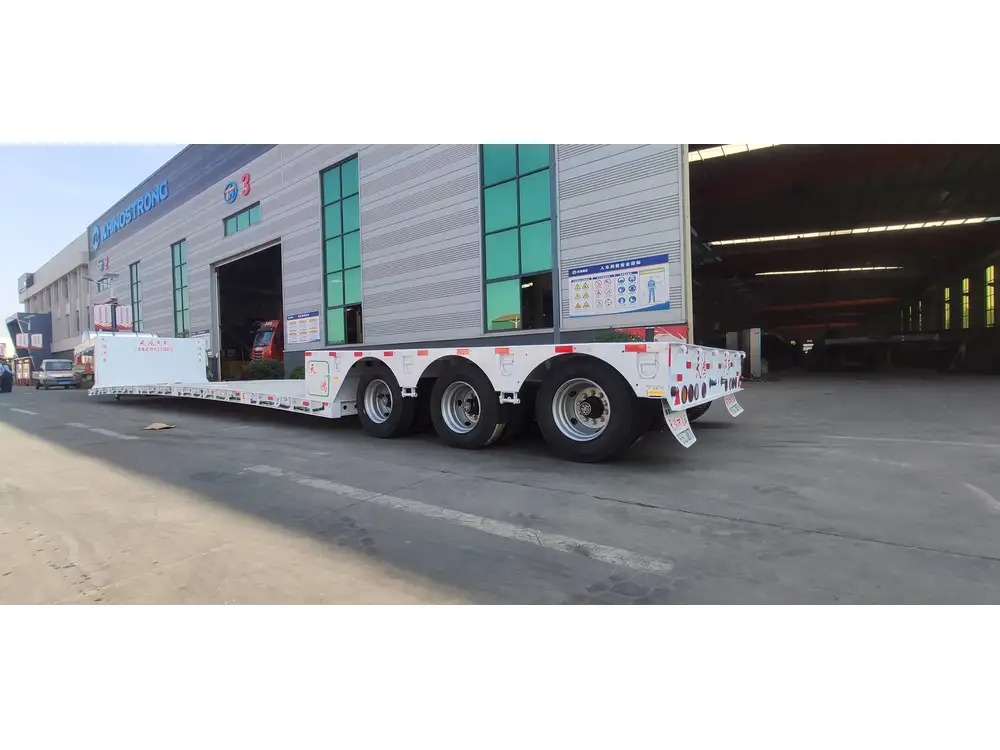
2. How do I determine the right size trailer for my business needs?
Choosing the right trailer size depends on the volume and weight of the cargo, the type of goods being transported, and the typical routes taken. Assess your specific transportation requirements and consult with manufacturers like CarMax Vehicle to select a trailer that optimizes capacity without exceeding weight limits.
3. What maintenance practices are essential for ensuring the longevity of a semi tractor trailer?
Regular inspections, adherence to maintenance schedules, keeping the trailer clean, and proper storage are crucial for prolonging the lifespan of a semi tractor trailer. Additionally, promptly addressing any mechanical issues and ensuring load securement contribute to the trailer’s durability and safe operation.
4. Can semi tractor trailers be customized for specific industries?
Yes, semi tractor trailers can be tailored to meet the unique demands of various industries. CarMax Vehicle offers customization options, including specialized cargo handling equipment, modified structural designs, and advanced climate control systems to accommodate specific transportation requirements.
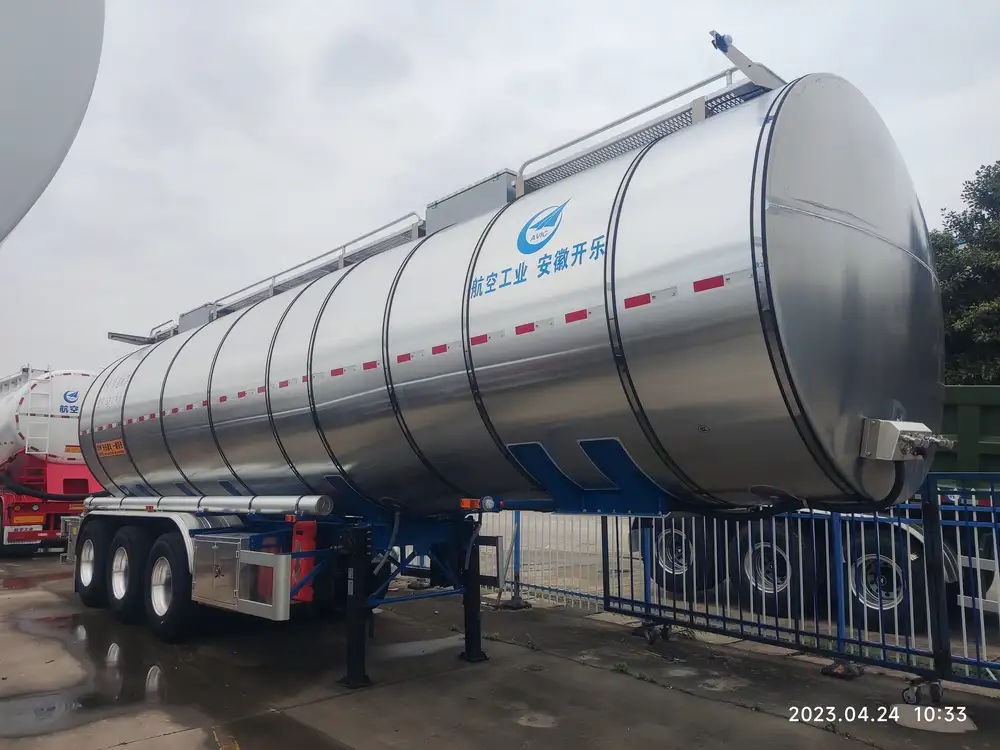
5. What safety features should I look for in a semi tractor trailer?
Key safety features include a reliable braking system, stability control, reflective markings, load securement mechanisms, and compliance with regulatory standards. Advanced features such as anti-lock brakes, electronic stability programs, and temperature monitoring systems (for reefers) also enhance safety during transit.
Embracing the expertise and reliability of CarMax Vehicle, businesses can navigate the complexities of transportation with confidence, ensuring their goods reach their destinations safely and efficiently. Whether you require flatbeds, dry vans, reefers, tankers, or lowboys, our comprehensive range of semi tractor trailers is designed to meet and exceed your logistical needs.



